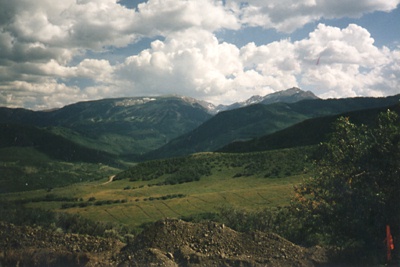All Nonfiction
- Bullying
- Books
- Academic
- Author Interviews
- Celebrity interviews
- College Articles
- College Essays
- Educator of the Year
- Heroes
- Interviews
- Memoir
- Personal Experience
- Sports
- Travel & Culture
All Opinions
- Bullying
- Current Events / Politics
- Discrimination
- Drugs / Alcohol / Smoking
- Entertainment / Celebrities
- Environment
- Love / Relationships
- Movies / Music / TV
- Pop Culture / Trends
- School / College
- Social Issues / Civics
- Spirituality / Religion
- Sports / Hobbies
All Hot Topics
- Bullying
- Community Service
- Environment
- Health
- Letters to the Editor
- Pride & Prejudice
- What Matters
- Back
Summer Guide
- Program Links
- Program Reviews
- Back
College Guide
- College Links
- College Reviews
- College Essays
- College Articles
- Back
Azerbaijan
Nestled among Russia, Armenia, Georgia, Iran, Turkey, and the Caspian Sea is Azerbaijan, a European country slightly smaller than the United States' Maine. Its capital is Baku and its estimated population is 8,832,000.
The earliest evidence of human civilization is from the Stone Age, but little of its history was recorded until the time between 900 and 700 B.C., when Iranian Medes from the North of the Aras River came to dominate the area south of the Aras, which would be the area that is now Azerbaijan. The Medes forged a vast empire which included this newly dominated area, and then the Medes' empire was integrated into the Achaemenids Empire in 550 B.C.
At about this time, Zoroastrianism was the official religion. Zoroastrianism is an Iranian religion, founded around 600 B.C. by Zoroaster, the principal beliefs of which are in the existence of a supreme deity, Ahura Mazda, and in a cosmic struggle between a spirit of good, Spenta Mainyu, and a spirit of evil, Angra Mainyu. Then in the 6th century A.D., Christianity was adopted as the official religion.
At the beginning of the eleventh century, the territory was being gradually seized by Turkic Oghuz tribes from Central Asia and by Iranian dynasties. Then, while under Persian dominion, khanates, a political entity ruled by a khan (self-ruling, hereditary leaders), took over. The khanates exercised control over their affairs via an international trade route between Central Asia and the West. Engaged in constant warfare, these khanates were eventually incorporated into the Russian empire in 1813, after two Russian-Persian wars. The area to the North of the river Aras, which was Iranian territory until being occupied by Russia, was to become the modern Azerbaijan.
In 1922, under heavy pressure from Moscow, Russia, the leaders of Azerbaijan, Armenian, and Georgian Soviet Socialist Republics formed a union known as the Transcaucasion SFSR. This was the first attempt at a union of Soviet republics, preceding the USSR. The Union Council of TSFSR was made up of the representatives of the three republics – Nariman Narimanov (Azerbaijan), Polikarp Mdivani (Georgia), and Aleksandr Fyodorovich Miasnikyan (Armenia). In 1936, TSFSR was dissolved and Azerbaijan SSR became one of the satellite states of the Soviet Union.
During World War II, Azerbaijan played a crucial role in the strategic energy policy of the Soviet Union. The majority of the Soviet Union's oil on the Eastern Front was supplied by Baku (Azerbaijan's capital city). Approximately 800,000 Azerbaijanis fought with the Soviet Army and about 400,000 died. Azeri Major-General Azi Aslanov was awarded Hero of the Soviet Union twice.
On October 18th, 1991, the Supreme Council of Azerbaijan adopted a Declaration of Independence. This was affirmed by a nationwide referendum in December 1991, when the U.S.S.R. was officially disbanded. In 1993, the former leader of Soviet Azerbaijan, Heydar Aliyev, rose to power as president. Many attempts were made to overthrow him, yet he was re-elected in 1998. However, widespread corruption, voting fraud, and objection to his self-appointed power made him an unpopular president. When Heydar Aliyev died, his son, the Prime Minister Ilham Aliyev, became his successor as the second leader of the New Azerbaijan Party.
Azerbaijani culture has developed as a result of many influences, particularly from Westerners. After Azerbaijan gained its independence from the Soviet Union, the first Baku International Film Festival East-West was held in Baku in 1991. Azerbaijani cuisine is distinct and unique and is deeply rooted in tradition and history. Saffron-rice plov (pilaf) is the national food and black tea is the national drink. In Mugham, a traditional form of music, poetry and instrumental interludes are prominent. When performing Mugam, the singers have to transform their emotions into singing and music. Popular Azerbaijani music made its debut in the 2008 Eurovision Song Contest, where its contestants placed 8th out of 43. In the 2009 Eurovision Song Contest, AySel and Arash—popular pop/R&B singers, took 3rd place. The two most popular sports in Azerbaijan are football (soccer) and freestyle wresting. Chess and backgammon are popular traditional board games often played in households in Azerbaijan and its surrounding areas. Azerbaijan has hosted many international chess tournaments and competitions and became the winners of the 2009 European Team Chess Championship.
From its formation to the present times, Azerbaijan has had and does have a very interesting and unique culture from its history to its cuisine to its sports and traditions. Azerbaijan's many accomplishments are recognizably great and worth notice. There can be confidence in saying that they will continue to be a great nation in the years to come.

Similar Articles
JOIN THE DISCUSSION
This article has 0 comments.
